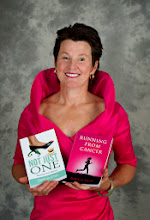Plenty of us have received the e-mail from the John Hopkins Hospital with warnings of toxins leeching from frozen or hot plastics water bottles and other plastics.
MythBusters has discredited this e-mail, verifying the J. Hopkins never released this statement and researching the SC & Johnson company, who refute the claims about heating their plastics.
MythBusters has discredited this e-mail, verifying the J. Hopkins never released this statement and researching the SC & Johnson company, who refute the claims about heating their plastics.
Health Canada (HC) has set safety standards for plastic manufacturers to adhere to. Companies like SC & Johnson that sell Saran Wrap and Zip Lock products. When marked microwave or freezer safe, or if they display a microwave symbol on their packaging, they are safe. That's not saying there aren't any toxins. It means if there are any, they are at what HC considers to be "safe levels."
Before microwaving, HC suggests to always remove food from packaging like Styrofoam trays and containers not labelled microwave safe. These containers are considered unstable meaning they could melt or warp, potentially "causing harmful chemicals to leech into the food."
That statement acknowledges there is such a thing as leeching from plastics, which tells me there is a risk here.
That statement acknowledges there is such a thing as leeching from plastics, which tells me there is a risk here.
"Cover the food with a microwave safe lid or microwave safe plastic wrap that does not touch the food. Covering food in the microwave will help trap steam, which will help cook the food evenly and thoroughly. Leave a small gap so that steam can escape."
In my mind, HC is still acknowledging a risk from heating microwaveable plastic without directly saying so.
In my mind, HC is still acknowledging a risk from heating microwaveable plastic without directly saying so.
Did you realize that yogurt containers, margarine tubs and sour cream plastics are meant for cold foods, not for heating? They might not even be freezer safe. When in doubt, stick to stainless steel, glass or clay or freezer-use marked plastics.
I also read this transcripted statement from the show 60 Minutes: Plastic containers come with recyclable numbers on the bottom or lower part of the container. When buying water in bottles, "the better bottles are numbered 1, 2, 4 and 5. Avoid number 3 and 6 for other chemicals. And number 7 means Bisphenol A (BPA)" a bad chemical now banned for use in baby bottles and pacifiers.
If the bottle doesn't say freezer or or microwave safe, I am going to take that as a warning about leaving it to freeze or overheat in my vehicle. What are a few precautions in the face of my health?
Buyer Beware: if a product says it is BPA Free, it may simply mean the company used another unbanned toxin in its place. Do your homework.
The key to avoiding toxins is to simply try and use as many natural products as you can in your daily life. Natural beauty and cleaning products, organic foods and chemical free containers.
A glass water bottle keeps your water tasting great. Try one:




No comments:
Post a Comment